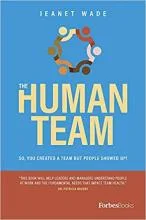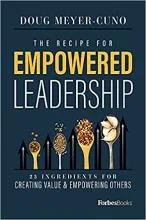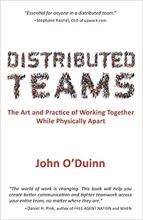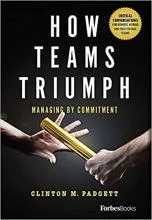The pandemic tested IT teams in entirely new ways and shed new light on the importance of taking care of employees’ very human needs in a difficult time. As former Best Buy CEO Hubert Joly recently wrote for the Harvard Business Review, that attention will shift to higher level needs like clarity, truth, connection, and growth.
Leading and managing teams may take more nuance in this remade work environment, so we’re recommending ten books to help you build stronger teams for the days ahead, from better understanding (and even celebrating) the very human nature of teams to fostering high-performing teams in distributed environments to making the shift from team member to leader.
[ Working on your communication skills? Read also: 9 must-read books to make you a stronger communicator. ]
1. The Human Team: So, You Created A Team But People Showed Up!
by Jeanet Wade

Book description (via Amazon): “The secret sauce to great teams, vibrant organizations, and happy people? Human nature. In a series of engaging and provocative chapters, [Jeanet Wade] combines business research with anecdotes from her career and her executive client sessions, showing how we can attend to human needs by clarifying assignments, showing baseline consideration, and inspiring confidence.
Poignant personal profiles, cutting-edge research, and the keen insight of a successful businessperson add vibrance and dynamism to each chapter, making for a compellingly readable and eminently useful book. If you want an inexpensive way to win the global war on talent and ensure your company can navigate disruption, this book is for you.”
Why you should read it: Wade, a business consultant and coach who recently shared her insights with Enterprisers’ Project on dealing with toxic teammates, weaves together anecdotes and research to remind us of all of the essential (yet often infuriating) human-ness of teams. “People tend to be our greatest sense of accomplishment,” she writes, “ and our greatest frustration.” Her goal is to help others down the path of leading teams not only more efficiently and effectively, but more joyfully.
[ Where is your team's digital transformation work stalling? Get the eBook: What's slowing down your Digital Transformation? 8 questions to ask. ]
2. The Recipe For Empowered Leadership: 25 Ingredients For Creating Value & Empowering Others
by Doug Meyer-Cuno

Book description (via Amazon): “In his late twenties, Doug Meyer-Cuno decided to abandon his budding corporate career to found his own company. He would go on to grow Carolina Ingredients from a one-person operation into a multimillion-dollar manufacturing company with an international customer base, eventually selling the company to Mitsubishi.
The Recipe for Empowered Leadership: 25 Ingredients for Creating Value and Empowering Others recounts the lessons Doug learned along that journey, from facing down his micromanager tendencies to embracing servant leadership as a coach and mentor to his team.
Brimming with easy-to-read leadership strategies and the life-changing ‘defining moments’ that developed them, Doug reveals the value that a strong, yet grateful leader adds to any organization and how to incorporate those principles into your own leadership practice and life.”
Why you should read it: If you don’t create your company culture, Meyer-Cuno is fond of saying, someone else will. The same goes for your team. Everyone may have a different recipe for successful leadership, but Meyer-Cuno’s may resonate, categorized into five main categories: vision, core culture values, authenticity, transparency, and gratitude.
3. Distributed Teams: The Art and Practice of Working Together While Physically Apart
by John O’Duinn

Book description (via Amazon): “Drawn from 26+ years working in distributed organizations, this book gathers what did — and did not — work from my own hard-learned lessons, as well as learnings from company founders, hedge fund managers, software developers, data scientists, accountants, book publishers, economists, political organizers, recruiters, military personnel, executive assistants, therapists and medical technicians.”
Why you should read it: The 2018 guidebook to virtual teamwork is timelier than ever. Computer engineer John O’Duinn has led distributed teams for more than twelve years and distills his most important lessons learned for those of us with less experiences collaborating and managing from a distance.
4. How Teams Triumph: Managing By Commitment
by Clinton M. Padgett

Book description (via Amazon): “Calling upon over thirty years of experience delivering optimized project outcomes for some of the world’s leading brands, author Clinton M. Padgett reveals the ‘secret sauce’ many leaders leave out of their project success equation. Taking what’s already working on your teams, the principles detailed in How Teams Triumph help your people maximize performance by enhancing communication; breaking down silos; and providing a proven, repeatable framework to complete projects with all stakeholders pulling in the same direction.”
Why you should read it: Clint Padgett, president and CEO of Project Success, has shared his wisdom about managing teams in the new hybrid work environment with the Enterprisers Project recently. The people side of project management is as important to success as the technical aspects, Padgett argues. He shares the trick to closing the gap between the technical expertise required to design a project and the softer skills needed to get people committed to execution.
5. Team of Teams: New Rules of Engagement for a Complex World
by Stanley McChrystal, Tantum Collins, David Silverman and Chris Fussell

Book description (via Shortform.com): “In Team of Teams, McChrystal describes how he transformed the slow-moving bureaucratic task force into an agile, adaptable network of teams united by a ‘shared consciousness’, trust, and decentralized decision-making…These accomplishments hold lessons for all kinds of organizations struggling with unconventional challenges and environments today.”
Why you should read it: The former commander of the Joint Special Operations Task Force has a new book coming out in October called Risk: A User’s Guide, but this 2015 tome is particularly relevant in these uncertain times as well. In a world of rapid change, McChrystal says, the best organizations think and act like a team of teams: embracing small groups that combine the freedom to experiment with a relentless drive to share what they’ve learned. He and his co-authors share the value of combining the agility, adaptability, and cohesion of a small team with the power and resources of a larger organization to great effect.
Let's look at five more must-read books on teamwork:





